How to Shift Your Mindset To Heal Your Gut
Disclaimer: I am not a psychologist or a mental health professional. This is not professional medical advice or treatment and these opinions are purely informational.
If I’m being perfectly honest with you, I can’t remember a time in my life where I didn’t have an issue with food or with my gut. I was a toddler when I first started getting chronic ear infections that had me on antibiotics constantly, I had horrible food aversion as a child, I started getting stomach pains as a teenager, and I was finally diagnosed with leaky gut in college. My gut had always been a weak point for all of my life, which effected so much more than just my digestion. Our gut health is responsible for our immunity, our mood, our food cravings and habits, the health of our skin, and our body as a whole.
We’re all starting to wise up to the fact that our gut health matter tremendously for our health as a whole, and that most of us (especially those with autoimmunity) have very compromised guts. There are so many resources out there on healing your gut. You can find tons of “4 r protocols”, recipes, and books. Heck, I even wrote a gut healing e-book myself! Our gut health really, really matters, and the food, lifestyle, and supplement protocols to heal it are crucial.
However, there’s one huge piece that most people aren’t taking seriously enough when it comes to gut healing. No it’s not more probiotics, more bone broth, or some supplement. I’m talking about mindset.
Why Is Mindset So Important For Healing?
Our mindset matters because it not only influences our physiology, our hormones, our cortisol, and our immune system (really, it does) but we can all do about as much as we set out mind to. I have literally made myself sicker over the years over believing that I’m getting sicker and just mentally giving up the fight for a healthier gut.
Regardless of how hard it is to have a positive outlook when healing the gut, it’s crucial. It’s crucial for our quality of life, our health, and for finally healing.
Our mindset plays such a powerful role in our health as a whole, but we don’t always take it seriously. And after being so sick for so long, it’s hard to have a positive mindset, right? This state of poor gut health last for 20+ years for me, how am I supposed to have a positive mindset about it?
But, beyond going to yoga, taking more walks, and downloading more meditation apps, how can you really change your mindset to insight healing?
How to Shift Your Mindset To Heal Your Gut
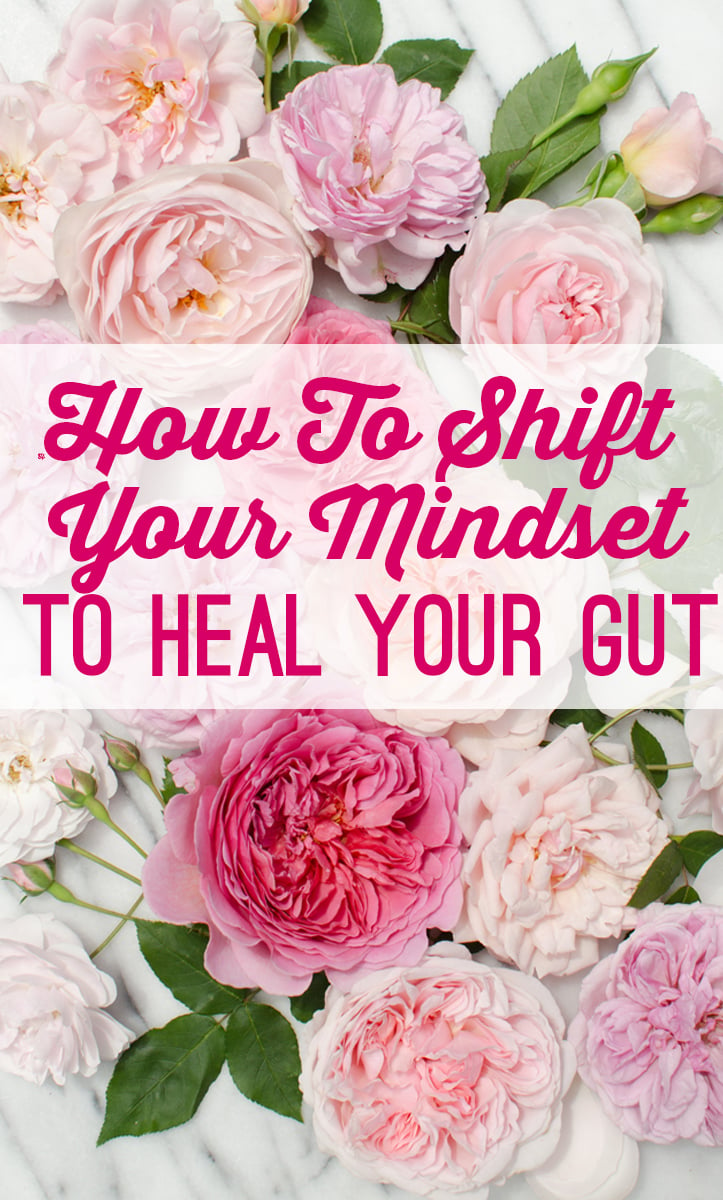
1.Stop telling yourself that your body & your gut hates you.
“Never affirm or repeat about your health what you do not wish to be true.” – Ralph Waldo Trine
One of the biggest problems that I see in this autoimmunity community is that we commonly say “my body is attacking itself” or “my gut hates me” or “my body hates my thyroid”. I see it all over social media, people email me these things, my clients tell them to me, and heck, I’ve said it way to many times.
It’s true that autoimmunity is a the body emitting an immune response on itself… let’s be fair and recognize it for what it is. However, constantly telling ourselves that we hate our body and that our body hates us creates that negative relationship. If you constantly told yourself that your best friend hates you and you hate your best friend, what would happen? You would start to get uncomfortable around them, project feelings onto them, create arguments in your head that never happened, until you eventually really did hate each other. Think about it… who has a closer relationship with your own body than you?
You create your relationship your body… make it a good one that promotes healing rather than hate.
I’ve been known to say “my thyroid hates me” often, but I’ve said worse things about my gut as it’s been more of the issue for my entire life. My own negative self talk that I created against my gut issues was “my stomach feels like it’s rotting”. And I mean, it did literally feel like I had eaten food that started to rot in my gut, and with all of the poor digestion I’ve suffered for years, I did have fats rancidifying in my stomach. These feelings were real, but I would sit in my car, or at my desk, or in the back of my yoga class saying in my mind “my stomach is rotting… it feels like it’s rotting… it feels like it’s rotting.” And so, that’s what I focused on. I did that for years.
It’s only recently that I started to turn that feeling and that self talk into “what can I do to help my body feel better… how can I help my body heal this… what can I do to promote healing?”. Sure enough, I found ways. I found HCL supplements, a diet that was easier to digest, and ways to calm myself down when I had these flares.
When I stopped telling myself that my gut hated me, it started loving me.
2. Stop dwelling on the fact that you have gut issues.
There is a very fine line between being enthusiastic and being obsessive, and most of us are constantly towing that line more than we’d like to admit. It’s a popular conversation that those of us in the health and wellness industry can trigger orthorexic or eating disorder behaviors in others, and that’s not a wrong statement.
In addiction recovery, it can be commonplace to eventually stop calling oneself a former addict, or a recovered addict is it suggest that you were formerly an addict. Rather, it can be seen as best to move away from the labels and continue life without them.. always acknowledging that you have won the battle, but that it doesn’t have power over you anymore.
As someone who has battled disordered eating habits and tendencies (more on that soon, I swear) I would often make myself worse by obsessing over it and telling myself over and over again that I had these habits. The more I focused on them, the more they had power over me.
It’s the same thing with gut issues. Yes, we need to drink the broth, we need to see the functional medicine doctors, we need to follow the protocols, and we need to make it a lifestyle to keep from getting back to square one… but referring to ourselves as “having leaky gut” or “always having gut issues our whole lives” is counter productive.
Instead, acknowledge that you have had these issues… acknowledge that you are working on them… but don’t give it enough power to make you eternally miserable.
3. Accept that you don’t need junk food to live.
I’ve said it before, and I’ll say it it again… you don’t need junk food to be happy. Society, marketing, and social pressures may make us feel like we need 80% real food and 20% junk food to be happy, but it’s just not true.
The 80/20 rule is that as long as you eat well 80% of the time, you can stray 20% of the time and still be classified as normal and healthy in societies eyes. Society tends to I’m sorry, but I highly disagree. You don’t need to binge out on fast food to have a healthy mindset.
80/20 isn’t inherently wrong as it’s really just an idea of “treat yo self”, but the point is that you can classify your 20% in any way you want. Maybe that’s fruit, or dark chocolate, but know that you don’t need the french fries to be happy.
4. Remember that highly restricted diets are temporary.
Though we don’t need junk food it live, I also know that most gut healing protocols cut out “real food” as well. Nightshade vegetables, FODMAPS, vegetable starches, nuts, and others that are all perfectly healthful foods, but not always appropriate for gut healing. It can be hard to cut out “real food”, but what’s crucial to remember that is temporary.
The GAPS diet is meant to be followed for two years, AIP a few months, and more structured protocols will be within that same range. I discuss the length of time needed to heal the gut in this blog post, and believe that it’s important to keep in mind that this is a temporary protocol, not a permanent state of being. Not only does it make it more bearable as you’re going through it, but it creates a mental path to actually allowing yourself to find a way to get in those foods again.
5. Love the food that you eat.
I make a serious effort to share recipes on this blog that I love and that are fun to eat! Just because gut healing diets are void of traditional comfort foods, doesn’t mean that you can’t love your food!
For example, I used to love chicken nuggets and french fries. Like, love. That was my comfort food as a child and I thought there was absolutely zero way to incorporate that food in my life again when I cut our grains and nightshades. When I opened my mind and allowed myself to love food again, I created parsnip fries and the very popular, sweet potato chicken poppers. Just as good, and so much more nourishing!
Loving your food makes the gut healing protocol more enjoyable, it creates a positive relationship with healing, nourishing foods, and it improves digestion! We need to be in a relaxed, happy state to properly digest, and if we love the food we’re eating, the more likely we are to digest it well and absorb the nutrients.
5. Create your own healing mantras and positive things to say about your journey
“My gut feels like it’s rotting” is just one of the negative things that I used to tell myself about my body. I’ve often also said that I feel like I would “never heal” or that “this was forever”. Think about it… we all have something negative that we say.
It’s so important to take the negative things you say about your gut and turn it around to something positive. For example, I stopped telling myself that my gut felt like it was rotting… rather, I asked myself what I could do to help my gut heal and help myself feel better in that moment.
Some great mantras to take on could be…
- I am healing
- I am going great things for my body
- I’m helping my body come back into balance
6. Lean on community support
Humans are social beings. Our ancestors were in tribes, communities, and tight knit groups for centuries. I’m currently reading the book Mind Over Medicine which has a fascinating study about a small town where the citizens were much healthier than neighboring towns. After studying their diets, genetics, environment, and more, it was eventually determined that the main differentiating factor was the close knit community and socialization in this town. They treated each other like family, their children were all friends, and they were each others support system if anything went wrong with another family.
Being in community and having support can be one of the best things you can do on a gut healing journey. You have people who you can learn from, relate to, and walk the same path with. I have a FB group called Gut Healing Support, that I host for that very purpose.
Getting support from your family and friends who may not be on the same journey is still possible. For me, it’s been all about educating those close to me about what I’ve gone through so they can better understand. Sometimes it’s still a big struggle to get support, but the people who really care about you will always find a way to love you regardless.
7. Believe in something bigger than yourself
Also in Mind Over Medicine (which is not a religious book, mind you), author Lissa Rankin discusses that those who believe in something bigger than themselves are healthier, happier people and are able to mentally recover more quickly from emotional trauma.
For me, my belief in God has changed the way I see everything. It’s given me the assurance that even though we all may struggle in this life, we can still be healed eternally. Think about that… we get so caught up in our own struggles or compare ourselves to others to see who has it worse, but in the end, we all struggle. My relationship with God has helped me navigate those struggles, and gain perspective outside of myself.
Maybe that’s not where you are now in life, but just believing in something bigger than yourself and taking a step outside of your own life and struggles gives such important perspective and peace of mind when it comes to healing. Whether it be God, the universe or other to you personally, remember that there is so much outside of our struggles.
8. Believe that you can heal
It’s never enough to just go through the motions… you have to actually believe in what you’re doing and saying. We have to actually believe that we can heal. Only when we do believe it’s possible is when we find a way to do it. If we only just partially believe it’s possible while still also have the subconscious thought that it isn’t, we’ll never fully commit.
So many times in my healing journey I would say that I believed I could do heal my gut, while simultaneously telling myself that I never would. That negative voice honestly wasn’t even conscious. It’s the thing that kept me back sliding for years and had me saying, “what’s the point anyway?”.
That negative voice still creeps in some days, and it can be a struggle to shut it up. I have to be constantly mindful, and forever faithful, but believing that you can do something is always the most important part of actually doing it <3
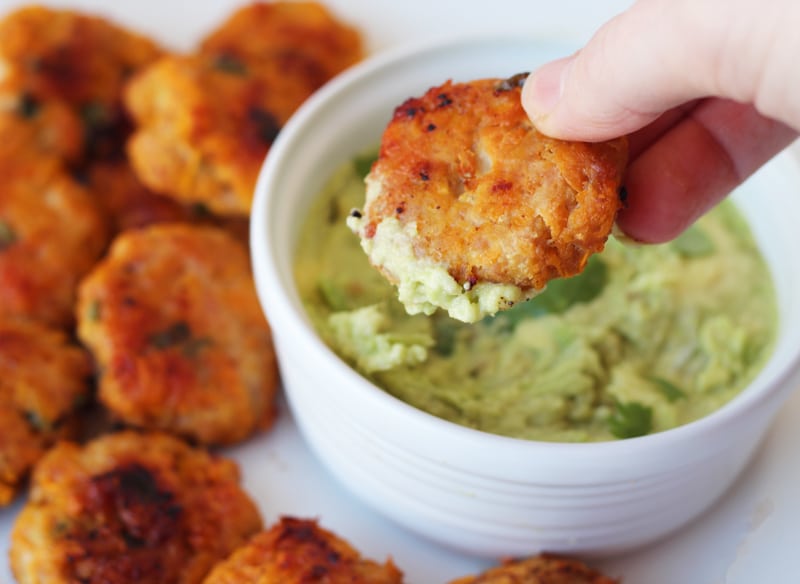
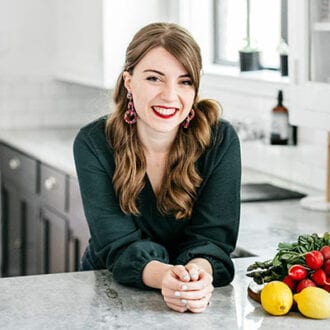
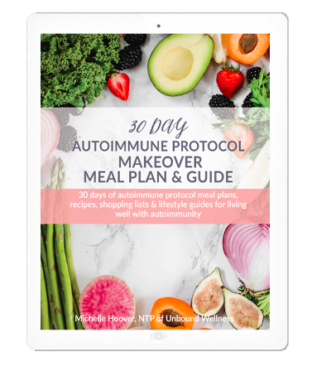


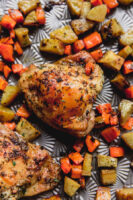


So, I’ve been on aip for longer than a few months with a few reintroductions. My mindset is definitely holding me back. My gut is far from being healed and I’m at a loss at my next step. Should I just go ahead and eat normally and work on mindset, then go back onto aip or continue on and work on both at the same time.
I would suggesting looking into working with a professional on the mindset piece. My own clients have had great success working with a therapist or counselor to work through their mindset while on AIP.
What have other people done
Pingback: 50 Ways To Heal Your Gut & Be a Gut Healing Goddess - Unbound Wellness
Great article!
Thank you, Jenifer!
Your link to Facebook support group didn’t work. I tried searching for it to no avail. Can you provide the url?
Hi! The support group is for those who own the AIP 30 day guide. You’ll get the link via email once you purchase the ebook!